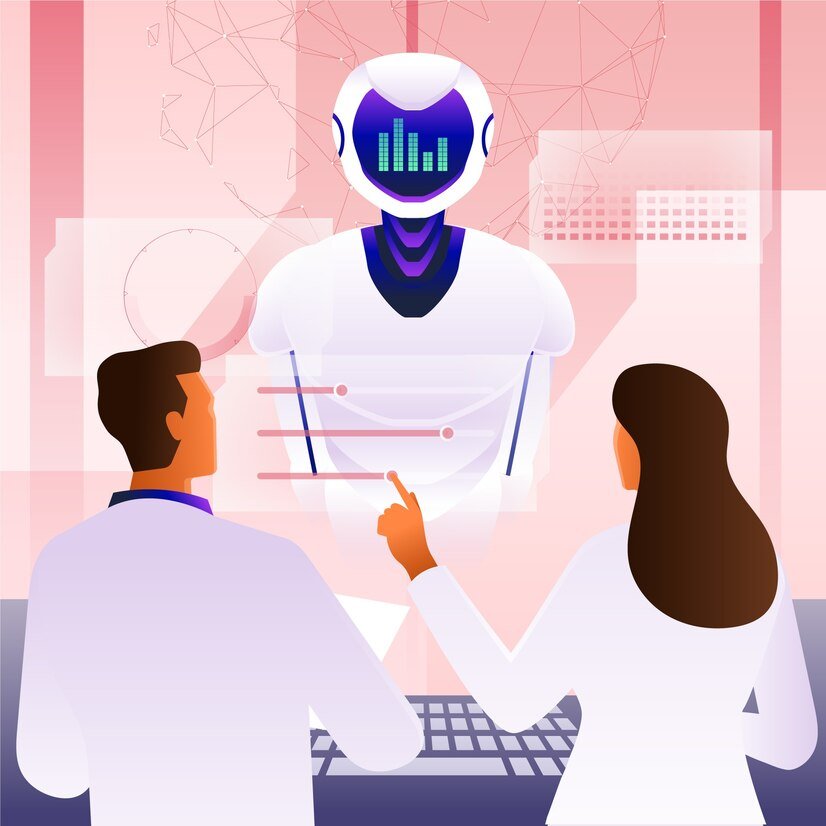
The Role of AI in Talent Acquisition: Enhancing Recruitment Efficiency
Posted on May 5, 2024
In the competitive landscape of modern business, organizations are continuously seeking innovative methods to attract and retain top talent. One of the most transformative technologies in this domain is Artificial Intelligence (AI). By streamlining recruitment processes and enhancing decision-making, AI is revolutionizing how companies identify, engage, and hire candidates. This blog explores the myriad ways AI is enhancing recruitment efficiency and reshaping talent acquisition.
1. Automating Administrative Tasks
Recruitment involves a myriad of repetitive tasks, such as screening resumes, scheduling interviews, and sending follow-up emails. AI-powered tools can automate these administrative processes, allowing HR professionals to focus on more strategic activities. For example, chatbots can handle initial candidate queries and pre-screening, while AI algorithms can quickly sift through hundreds or thousands of resumes to identify the most qualified candidates based on predefined criteria. This automation significantly reduces the time-to-hire, which is crucial in a competitive talent market.
2. Enhanced Candidate Sourcing
AI tools can analyze vast amounts of data from various sources, including job boards, social media platforms, and professional networks. These tools can identify passive candidates who may not be actively looking for a job but possess the skills and experience a company requires. By leveraging AI-driven sourcing techniques, recruiters can tap into a broader talent pool, ensuring a diverse range of candidates and increasing the likelihood of finding the perfect fit for their organization.
3. Improved Candidate Screening
One of the most critical steps in the recruitment process is screening candidates to determine their suitability for a role. Traditional methods often rely on subjective judgments, which can lead to biases and missed opportunities. AI can analyze candidate profiles against job descriptions, assessing qualifications, experience, and even cultural fit using advanced algorithms. This data-driven approach minimizes bias and enhances the objectivity of the selection process, ultimately leading to better hiring decisions.
4. Predictive Analytics
AI’s predictive analytics capabilities enable recruiters to forecast hiring outcomes based on historical data. By analyzing previous hiring patterns, turnover rates, and employee performance metrics, AI can provide insights into which candidates are likely to succeed in a given role. This predictive power helps organizations make more informed decisions, reducing the risk of bad hires and ensuring long-term employee retention.
5. Enhancing Candidate Experience
In an era where candidate experience can significantly impact an employer’s brand, AI can play a crucial role in creating a seamless application process. AI-driven chatbots can provide real-time support and feedback to candidates throughout the hiring process, answering questions and providing updates on application status. Additionally, personalized communication powered by AI can enhance engagement and build a positive candidate experience, increasing the likelihood of attracting top talent.
6. Bias Reduction
AI has the potential to reduce bias in hiring processes by standardizing the evaluation criteria and using data-driven insights. However, it is crucial to ensure that AI algorithms are designed and trained to minimize bias, as they can inadvertently perpetuate existing biases if they rely on flawed historical data. Organizations must regularly audit and refine their AI systems to ensure fairness and equity in hiring practices.
7. Streamlined Onboarding
AI is not just limited to the recruitment phase; it can also enhance the onboarding process. AI-powered platforms can provide new hires with personalized onboarding experiences, automating document collection, training schedules, and resource distribution. This not only speeds up the onboarding process but also helps new employees acclimate to their roles more effectively, leading to higher job satisfaction and retention rates.
8. Continuous Improvement through Data Analysis
AI’s ability to analyze vast amounts of data allows organizations to continuously improve their recruitment strategies. By tracking metrics such as time-to-hire, candidate quality, and employee retention, AI can provide insights that inform future hiring practices. This ongoing analysis enables companies to adapt their recruitment strategies to changing market conditions and evolving talent needs.
Conclusion
The integration of AI in talent acquisition is not just a trend; it is a paradigm shift that enhances recruitment efficiency and effectiveness. By automating administrative tasks, improving candidate sourcing and screening, leveraging predictive analytics, and enhancing the candidate experience, AI is transforming how organizations attract and retain talent. However, it is essential for companies to approach AI implementation thoughtfully, ensuring that their systems promote fairness and reduce bias. As the recruitment landscape continues to evolve, organizations that embrace AI will be better positioned to navigate the challenges of talent acquisition and build high-performing teams.
By leveraging the power of AI, businesses can enhance their recruitment strategies, ensuring they attract the right talent to drive growth and innovation in the ever-changing business environment.
Categories: Talent Acquisition
